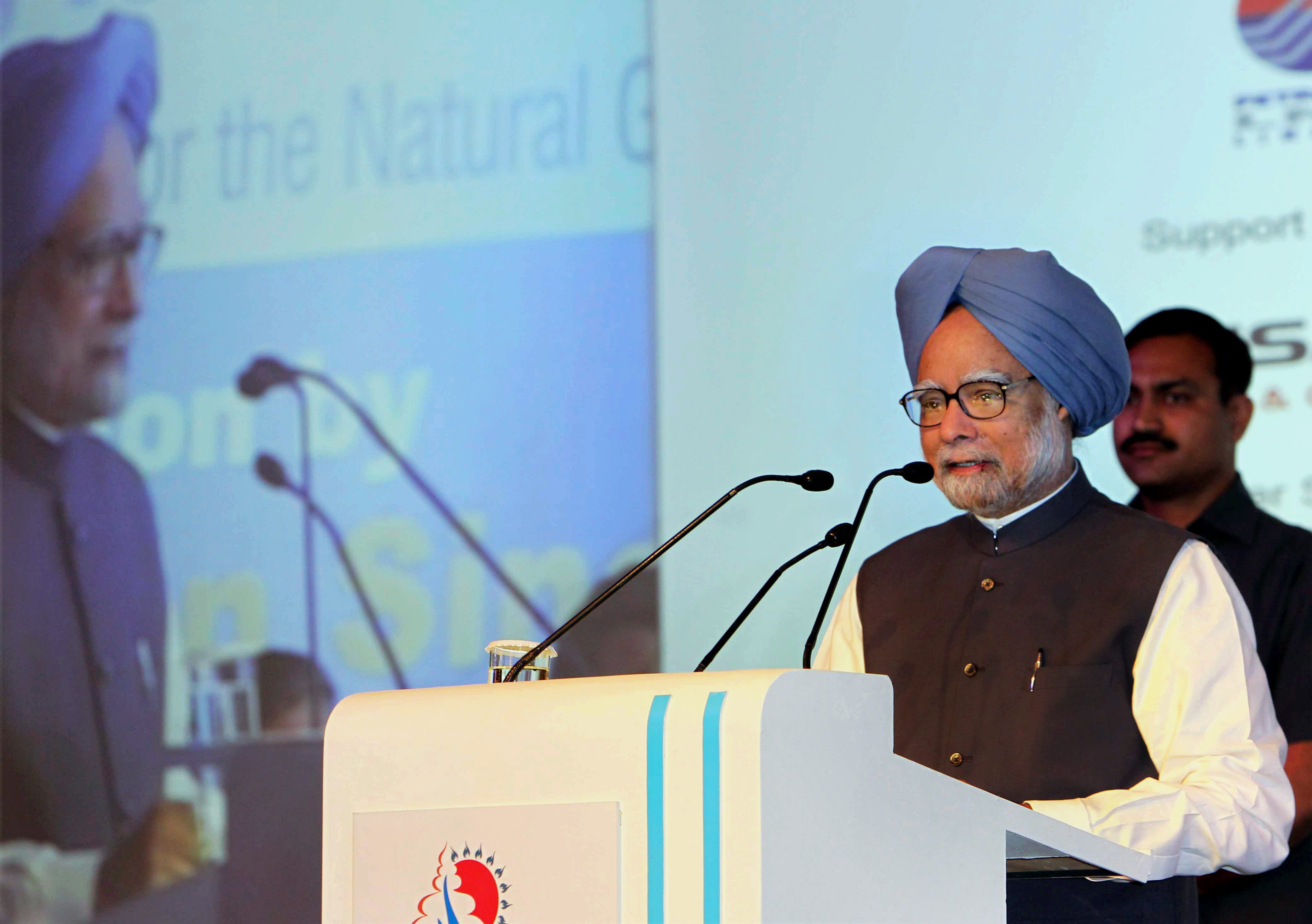ID :
233654
Fri, 03/23/2012 - 12:29
Auther :
Shortlink :
https://www.oananews.org//node/233654
The shortlink copeid
Remunerative energy prices needed to ensure expanded supply: India PM

New Delhi, Mar 23 (PTI) Stressing that His government was committed to finding solutions for the issues facing the gas industry, Indian Prime Minister Manmohan Singh today said remunerative energy prices was needed to ensure expanded energy supply.
"The government has initiated gas pricing policy reforms to incentivise production of natural gas. We are conscious that remunerative energy prices are needed to ensure expanded energy supply," he said at the 7th Asia Gas Partnership Summit here.
"Let me take this opportunity to reaffirm that our government is committed to taking all possible steps to find viable solutions to meet the concerns of the gas industry. We are committed to ensuring the predictability and transparency of our policy and regulatory environment," he said.
Prime Minister's statement comes at a time when Reliance Industries, the nation's largest private oil and gas producer, is seeking a more transparent and credible market price for natural gas.
RIL's KG-D6 gas fields on the country's eastern offshore have seen output drop more than 40 per cent to under 35 million standard cubic meters per day. RIL’s partner BP Plc too has called for remunerative prices for further investment to take place.
"The economic exploitation of these resources should lead, therefore, to win-win solutions for both the investors as well as the people of India at large," Singh said. "At the same time oil and gas are national resources and, therefore, should be within the framework of government and regulatory oversight."
While governmental support can greatly help in developing useful partnerships in the gas and oil sector, Singh said he expected the industry to come forward with innovative ways and means to create a better and sustainable energy future for the Asian region.
Singh said the use of natural gas offers greater supply security through diversification of the energy basket and also helps in promoting sustainable economic growth and development.
During last five years, India's gas consumption has grown 14 per cent, he said. "Expanding the use of natural gas in India is one of the most important and immediate ways of responding to the challenges of energy security and the management of climate change."
The New Exploration Licensing Policy (NELP), launched in 1997-98, has attracted over USD 14 billion investment and discovery of 87 oil and gas blocks. Of these three blocks are in production.
The ninth round of NELP has just been completed covering a sedimentary area of about 88,000 sq km, which saw participation by 37 companies, including eight foreign ones.
To cater to the large demand for gas, India has accelerated investment in creation of LNG re-gasification facilities. With new re-gasification LNG terminals coming up at Kochi and Dabhol, the country's current import capacity of 14 million tonnes a year is set to increase to 20 million tonnes a year by 2012-13, he added.
"We have also launched an ambitious pipeline development programme. I understand that the GAIL alone will expand its pipeline length from the existing 9,000 Km to around 14,500 km by 2014. Private operators are also expected to add another 5,000 km in the same period.
"The target is to have a country-wide gas grid of about 30,000 km by the end of the 12th Five-Year Plan in 2017," he added.
Asia Gas Partnership Summit (AGPS) is a biennial flagship event of India's natural gas industry. The two-day seventh summit today and tomorrow is on the theme ‘Evolving Dynamics of the Asian Gas Market: Challenges of Sourcing, Integration and Sustainability’. High profile speakers from leading energy companies, consultancies and governments from across the globe are taking part in the meeting. PTI





